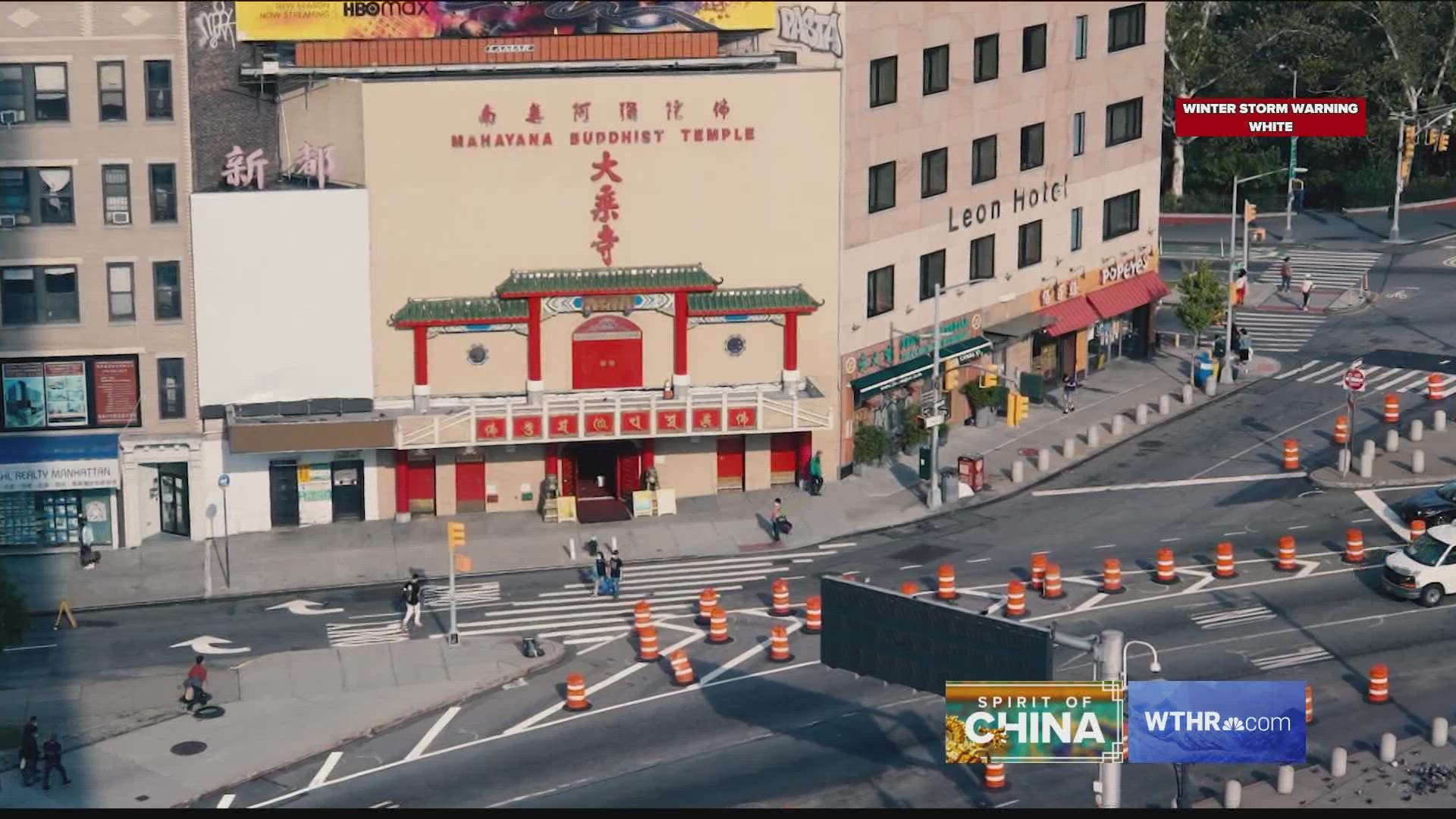CHICAGO — The Mahayana Buddhist temple in New York City has been busy during the pandemic.
"We felt very heartbroken for what we saw," said Livia Kao.
COVID-19 hit this community hard.
"I saw a lot of memorial services happening since 2020. A lot of people lost their family members and they do not have the chance to say a proper goodbye," said Kao.
"Me and the other monks still dedicate our time to send prayers to everyone who have suffered with the unfortunate pandemic. We would help them emotionally and financially here at the temple," said Venerable Kuo Ming.
But the Mahayana Buddhist temple hasn't been the only religious site where Chinese Americans have sought peace.
"I don't go there. My family's Catholic," said Joanne Kwong.
Joanne Kwong is a second-generation store owner born in New York City.
"A lot of Chinese Americans are not religious," said Kwong. "Buddhism is more like a cultural thing because there's not an organized religion."
According to the Pew Research Group, 52% of Chinese Americans don't have a religious affiliation. Twenty-two percent are protestant, 15% are Buddhist, 8% are Catholic. In the heart of the Midwest, there is a growing Christian community in Chicago's Chinatown. According to one study, 31% of Chinese Americans are Christians.
There are church services in English, Cantonese and Mandarin. More than 150 students attend the Pui Tak Christian school in Chicago's Chinatown.
"We definitely have Bible lesson, and we have Bible integration," said principal Bonnie Ho. "We talk about character education,"
A Christian community center is reaching out to Chinatown residents.
"Our mission is to be a Christian witness to Chinese in Chicago through education, family and community services," said David Wu of the Pui Tak Center.
The pandemic has pounded Chinatowns across America. Tourism has slowed, forcing shops and restaurants to close. We have seen crimes against Asian Americans. That has some leaders looking for alternative uses for houses of worship.
"If I reactivate the churches to be the dual language school that teach the proper Asian history and the proper American history, there would be a lot less conflicts. And people would love to pay the tuition for it. Because then you'll be fluent in Chinese and you'll be fluent in English," said Wellington Chen.
Livia Kao moved from China to the U.S. for college, eventually finding purpose in Buddhism.
"I found Buddhism really helped me and guided me through a very confusing time and I wanted to learn more about it and help other people," said Kao.
She now works at the temple saying Buddhism changed her life.
"I myself is in charge of what kind of life I'll be living in. It's my own karma. It's my own intention. It's my own viewpoint. And, it's my own effort that will decide where I am and where I'm going to," said Kao.
Many people are leaning on their faith during the COVID-19 crisis including Chinatowns across the country. Chinese Americans searching for peace in a turbulent time.
The "Spirit of China" series highlights the culture of Chinese-Americans across the United States. Learn about the people, the history and the challenges of Chinatowns in Chicago, New York and San Francisco while the world focuses on the Winter Olympics in Beijing.

